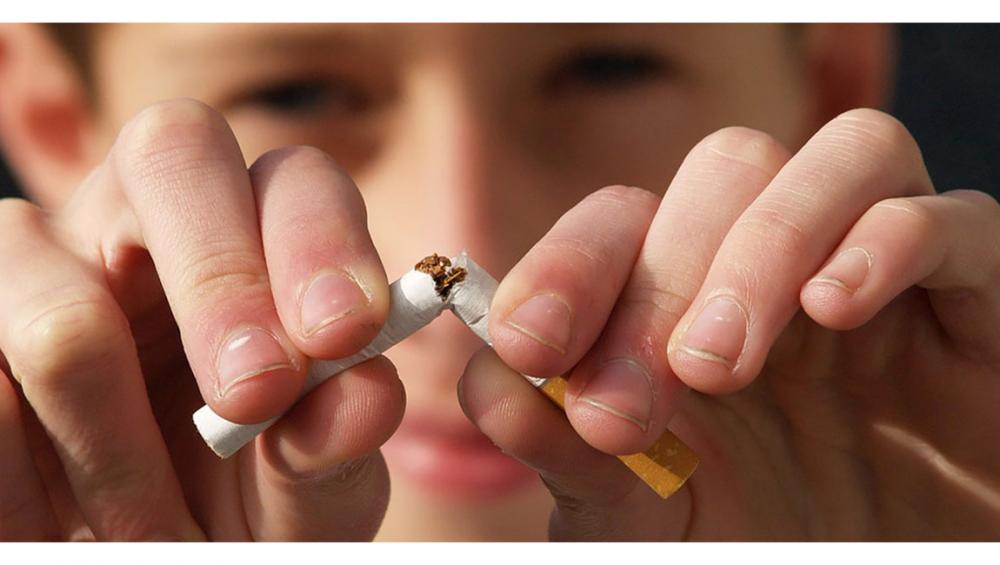Just Earth News | @justearthnews | 30 May 2019

New York, May 30 (JEN): Tobacco use continues to claim around eight million lives a year, the World Health Organization (WHO) said on Wednesday, in a call for faster action from governments to tackle smoking and the “enormous” health, social, environmental and economic costs it entails.
Ahead of World No Tobacco Day, marked on Friday, 31 May, WHO’s Dr Vinayak Prasad, acting Director, Department for the Prevention of Noncommunicable Diseases, highlighted the damage that tobacco causes to the lungs of smokers and non-smokers alike.
He warned that 3.3 million tobacco-related deaths - more than 40 per cent of the total - come from lung diseases, such as cancer, chronic respiratory diseases and tuberculosis.
“We want to highlight the huge scale of tobacco-related lung diseases,” he told journalists in Geneva. “Out of that 3.3 (million), about half a million people are those who are exposed to second-hand smoke and die from it…Amongst children, less than five years old, 60,000 children die every year from second-hand smoke – these are all low respiratory-tract infections.”
In just a single lungful of tobacco smoke, WHO insists that the hundreds of toxins contained in it “begin damaging the lungs”. This is because when smoke is inhaled, the structures that sweep mucus and dirt out of our airways are paralysed, allowing poisons in tobacco smoke to make their way into the lungs more easily.
The result of this is reduced lung function and breathlessness, owing to swollen airways and a build-up of mucus, WHO says, adding that these initial symptoms “are just part of the damage” that tobacco does to the lungs.
Governments 'lagging behind' their commitments
Although the percentage of people using tobacco globally has declined in recent decades - from 27 per cent in 2000, to 20 per cent in 2016 – WHO insists that governments are “lagging behind” their commitments to reduce tobacco use by 30 per cent by 2025.
To counter this, the UN agency is calling for quicker implementation of the WHO Framework Convention on Tobacco Control (WHO FCTC), which provides practical advice on how to implement tobacco control measures covering all sectors of government.
The Convention highlights the need for greater public awareness strategies, such as creating smoke-free indoor public spaces, workplaces and public transport, along with banning tobacco advertising, promotion and sponsorship, and significantly increasing taxes on tobacco products, which should be sold with graphic health warnings.
In parallel to these activities, WHO’s advice remains that it’s never too late to quit smoking, as lung function improves within two weeks of stopping.
“Quitting tobacco use has the potential to reverse some, but not all, of the damage done by tobacco smoke to the lungs,” WHO says. “Quitting as soon as possible is therefore essential to prevent the onset of chronic lung disease, which is potentially irreversible once it has developed.”
To help people who want to quit, WHO also recommends the implementation of a toll-free ‘quitline’ service which offers behavioural counselling to callers, helping to boost quit rates by as much as four per cent. Mobile phone-based support for people who want to quit has also proved successful, the UN agency maintains.
These include WHO’s “Be He@lthy, Be Mobile” cessation programme – in association with the International Telecommunications Union (ITU) – which offers personalized support through mobile text messaging.
“These programmes help tobacco users to quit and are efficient and cost-effective,” WHO says, noting that in India, the programme achieved a self-reported 19 per cent quit rate after four to six months, compared with a baseline population quit rate, of five per cent.
The programme has been implemented in Burkina Faso, Costa Rica, India, the Philippines and Tunisia, and can be rolled out elsewhere, WHO says.